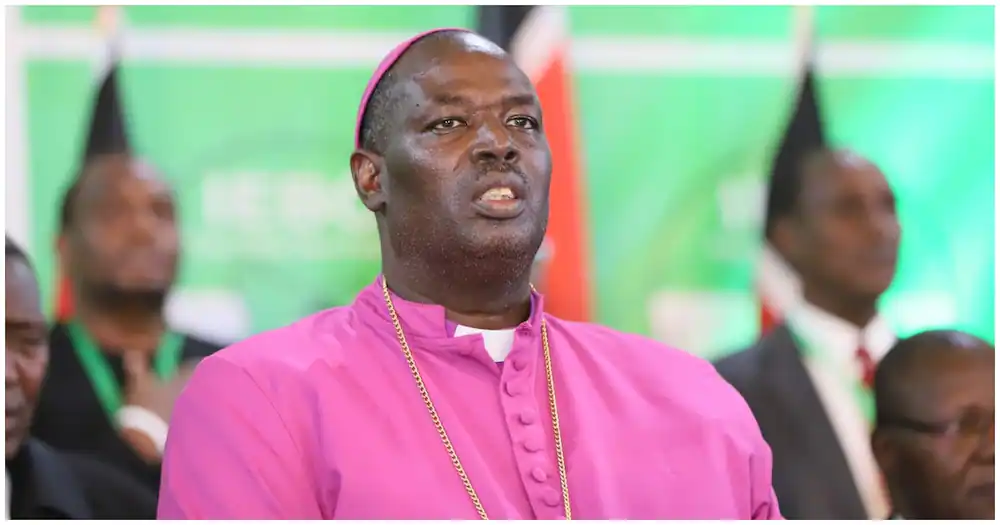The election of William Ruto in 2022 as the President of Kenya received overwhelming support amongst the clergy who christened him as the “Evangelical President”. During the thanksgiving prayer event at State House in Nairobi on September 25, 2022, the men and women of cloth received invites from the President to cleanse State House before he could move in officially. That was followed by a series of weekly and monthly prayer meetings at State House attended by the who is who in the country.
No sooner had the president named his cabinet than a section of the clergy started claiming that the appointments were skewed and did not reflect the face of Kenya. What began as mere criticism by the Anglican Church of Kenya Archbishop Jackson Ole Sapit towards President Ruto’s administration has now culminated into serious political undertones, with the president’s key allies terming the attacks as incitement against the government. Last week, Ole Sapit publicly told a church gathering that the president has failed to deliver on the promises he gave Kenyans in the run-up to the last general elections that he should stop cheating Kenyans and that he will fulfil them.
He was quoted as saying, “The promises made are unrealistic, let us go to prioritization. Let us work on priority number one and put aside the other one. We will go to it after we are done with the first one. We are going to break our backs trying to achieve the unrealistic promises we know we can’t deliver.”
However, Kenya Kwanza, in a quick rejoinder through the majority leader at the National Assembly, Kimani Ichungwa, came out boldly in support of his boss, President Ruto, accusing Ole Sapit of inciting the public against the president. Mr Ichungwa went on to accuse the archbishop of pushing the political agenda of an unnamed politician in the opposition. Initially, Ole Sapit was believed to be a close ally to former President Uhuru Kenyatta and Azimio leader Raila Odinga, but when Ruto was declared the winner, he was the first clergyman to arrive at Bomas to offer prayers and publicly congratulate Ruto for the victory. He was later to release a scathing attack against Raila Odinga and the opposition for not accepting defeat and recolonizing William Ruto as duly elected president. He went on to challenge Mr Odinga to go to the Supreme Court to pursue justice.
However, the honeymoon did not last, barely six months into William Ruto’s presidency, he started firing salvos at the president and his administration. The first public attack on Ruto was over growing cronyism in public office appointments and a lack of accountability in government agencies. In a statement, Ole Sepit wrote, “There is glaring tribalism and cronyism, particularly about public appointments. There is an apparent lack of accountability and transparency in our institutions, this is not acceptable.”
The direct attacks on the new administration by Ole Sapit caught many unawares since he was believed to be one of the most loathsome, with top clergy supporting the government at a time when political tension was high in the country with the opposition conducting weekly demonstrations. At one time, Ole Sapit also warned the Kenya Kwanza administration over poor governance, which he claimed has always been a recipe for political tension in the country.
As if that were not enough, he went on to accuse the government of slowing down in the fight against corruption. “To our dismay, impunity in the management of public resources and public affairs is becoming the order of the day.” Claimed the clergy.
Political analysts now say that the fallout between Ruto and Ole Sapit and, by extension, the majority of the clergy could negatively impact Ruto’s presidency. It is believed that Ruto’s appeal to Christians of all denominations during the campaigns was a factor in his election victory.





